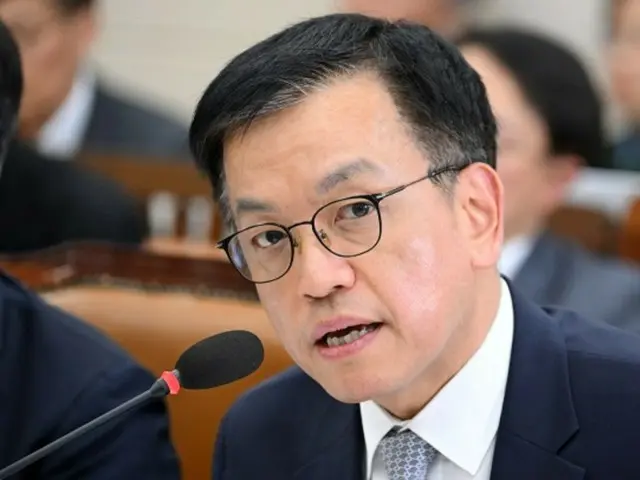In South Korea, following the suspension of President Yoon Seok-yeol, Han has been acting as president, but the largest opposition party, the Democratic Party of Korea, is leading a motion to impeach Han.
With the passage of the bill, Choi, who took over as acting president, is now in charge of steering national affairs, further deepening the chaos in the political situation.
The political turmoil began when Yoon declared "emergency martial law" late at night on December 3rd.
It is a type of order issued by the President in times of war or other emergency situations, when military necessity arises, or to maintain public order. The military takes control of administrative and judicial functions, and freedom of speech, press, and association is restricted.
It is also permitted to restrict the use of force. This was the first time that martial law was declared since democratization in 1987. Following the declaration, armed martial law soldiers broke the glass and stormed into the National Assembly building.
In an incident reminiscent of the past, many citizens gathered in front of the National Diet, chanting slogans against martial law and surrounding military vehicles, creating chaos.
However, if a majority of members of the National Assembly request the lifting of martial law, the President must comply with this request, and immediately after the declaration, a plenary session of the National Assembly must be held.
A parliamentary meeting was held, and all 190 lawmakers in attendance voted in favor of lifting the state of emergency. Yoon lifted it in just six hours. Opposition parties, including the Democratic Party of Korea, criticized Yoon for "attempting to suspend the constitutional order and seizing power permanently."
The Diet submitted a motion to impeach Yoon, accusing him of violating the Constitution by accusing him of "attempting rebellion to seize power and seizing power." The motion was passed by 204 votes in favor and 85 against on the 14th.
As a result, Yoon's presidential powers were suspended and Han became acting president. Article 86 of the Constitution stipulates that the Prime Minister of South Korea "shall assist the President, receive the President's orders in administrative matters, and supervise each administrative department."
There is also a provision that states that the President will assume power in the event that "the presidency becomes vacant or the President is unable to perform the duties of the presidency due to an accident."
Han said, "I will do all I can to ensure the stable running of national affairs," and has taken responsibility for the chaos that has been plaguing his presidency.
On the 19th, he held a 20-minute telephone conversation with Prime Minister Shigeru Ishiba, reaffirming the close cooperation between the two countries. Meanwhile, the Democratic Party of Korea has filed a lawsuit against the Constitutional Court, which is holding the impeachment hearing for Yoon.
They demanded that Mr. Han expeditiously appoint the vacant judges, but Mr. Han rejected the demand, saying, "We will put off the appointment until the ruling and opposition parties come up with a plan that is acceptable to both parties."
The Democratic Party responded by saying, "It has become clear that (Han) has no qualifications to act on behalf of the government, nor any intention to uphold the Constitution" (Park Chang-dae, floor leader of the party), and filed an impeachment petition against Han on the 26th.
A follow-up bill was submitted to the Diet. At the plenary session on the 27th, with 192 of the 300 registered Diet members in attendance, the bill passed with 192 votes in favor. A resolution to impeach the prime minister requires the approval of 151 votes, which is a majority of the Diet members.
However, the ruling People Power Party argues that because Han is acting as president, he needs the approval of more than 200 votes, which is two-thirds of the lawmakers, just like the president.
Chairman Won-sik did not accept this. Following the passage of the impeachment motion against Han, Choi became acting president. Choi is 61 and a former member of the Seoul Metropolitan Government. He is from Seoul University.
After graduating from the School of Law, she obtained a PhD in economics from Cornell University in the United States. She joined the Ministry of Finance and Economy, the predecessor of the Ministry of Strategy and Finance, and held a number of important positions. She was also called a "genius bureaucrat."
During the Geun-hye administration, he served as the Chief Secretary for Economy and Finance in the Presidential Secretariat and as the First Vice Minister of the Ministry of Strategy and Finance. After the Yoon administration was launched, he was appointed the first Chief Secretary for Economy.
He was forced to take on the tough task of fulfilling the three roles that he was previously responsible for. The Korean newspaper Dong-A Ilbo described Choi as "an orthodox economic and financial expert, with a wide range of experience, including working at the presidential office."
"He has experience in government positions and is considered to have the ability to make political decisions. However, some say he has limitations as a former member of the economic bureaucracy who aspires for stability."
On the 27th, Choi issued a statement saying, "I will do my utmost to ensure that national security and the daily lives of the people are not shaken."
On the 29th, a Jeju Airlines passenger plane crashed at Muan International Airport in the southwest, resulting in a major disaster with 179 people killed. Choi was in charge of the Central Disaster and Safety Countermeasures Headquarters.
He arrived at the scene that afternoon and instructed his team to make rescue efforts the top priority, saying, "No words of consolation are enough for the bereaved families."
2025/01/06 10:21 KST
Copyrights(C)wowkorea.jp 5

